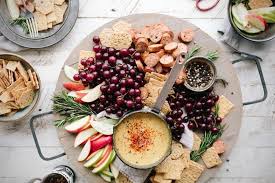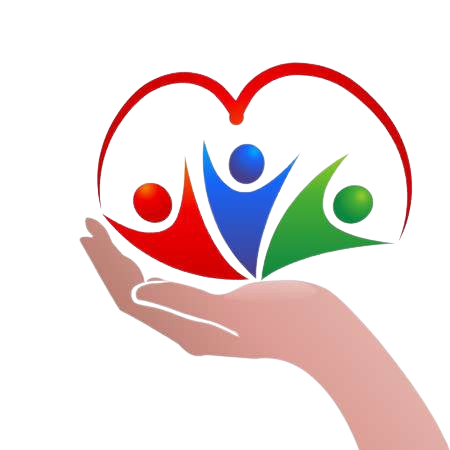Almost everyone has an answer to the question, “What’s your favorite food?”

That’s because as humans, we’re naturally drawn to enjoy the experience of eating. For many, food is one of life’s greatest sources of pleasure.
Beyond simply satisfying cravings or filling us up, finding joy in eating has meaningful benefits for our physical and emotional well-being. Savoring meals can aid digestion, support a healthy relationship with food, help address disordered eating behaviors, and more.
In some cases, making room for “vitamin P”—pleasure—can be just as valuable as the nutrients on your plate. Let’s explore why enjoying your food matters so much.
Why We’re Wired to Enjoy Food
Scientists have long been intrigued by the psychology and biology behind eating for enjoyment. What they’ve found is both fascinating and encouraging.
Pleasure from food isn’t just in the taste—it’s also a brain-based response.
“A pleasurable eating experience triggers the release of dopamine, the ‘feel-good’ neurotransmitter,” says Aleta Storch, RDN, MHC, a therapist and dietitian at Wise Heart Nutrition and Wellness.
“This dopamine release activates reward centers in the brain, contributing to feelings of calm, happiness, and motivation,” she explains.
In fact, earlier research from 2011 suggests that individuals with obesity may have altered dopamine responses, which could cause them to overeat in order to experience the same level of satisfaction.
When our brain chemistry is in balance, truly enjoying what we eat can benefit our physical health.
“Feeling relaxed and happy while eating puts the body into ‘rest and digest’ mode, which supports better digestion and nutrient absorption,” says Storch.
In other words, enjoying food doesn’t just feel good—it may help your body function better.
There’s also evidence that eating for pleasure encourages healthier habits.
A 2020 systematic review of 119 studies found that 57% showed a positive relationship between food enjoyment and healthier dietary patterns. One study from 2015 even linked greater eating pleasure with better nutritional status.
“There’s this myth that healthy food has to taste boring, but it’s simply not true,” says Sarah Gold Anzlovar, MS, RDN, LDN, a dietitian and intuitive eating coach. “When meals are satisfying and flavorful, people are more likely to eat well and less likely to binge or overeat.”
How Food Feeds More Than Just Hunger
If food were purely about fuel, our meals would lose much of their richness and meaning. In reality, food is central to our social lives, personal identities, and cultural connections.
Here’s how the pleasure of eating enhances emotional well-being.
Shared Meals Foster Connection
From family dinners to holiday celebrations, eating together brings people closer. A 2015 study on Thai communities found that shared meals boost happiness and social connection.
Comfort Food Heals Body and Soul
Certain meals carry deep emotional significance—like soup when you’re ill, or a childhood favorite dish that brings back happy memories.
“Food can bring comfort after a tough day, and that doesn’t have to be seen as a bad thing,” says Anzlovar. “When we consciously connect with the experience of eating, it can be incredibly soothing.”
Saying Yes to Pleasure Challenges Diet Culture
Diet culture often promotes the idea that delicious foods—especially those that are high in calories or fat—should be avoided. But giving yourself permission to enjoy those foods breaks that restrictive mindset.
“When people allow themselves to eat all types of foods, including their favorites, the body learns it can trust that food is available,” says Storch. “This can be a powerful step toward healing and creating peace around eating.”
Food as a Link to Culture and Identity
Food is a vital connection to heritage and tradition. Choosing to enjoy culturally meaningful meals affirms identity and strengthens belonging.
“Excluding traditional foods can send the harmful message that something about your culture is wrong,” Storch notes. “Embracing these foods supports mental health and a sense of self.”
Knowing the Difference: Eating for Pleasure vs. Emotional Eating
You may have heard emotional eating criticized, especially when it involves turning to food to cope with stress or sadness. But it’s important to separate this from eating for enjoyment.
“Emotional eating is often used as a coping tool for dealing with difficult feelings,” Anzlovar explains. “Eating for pleasure is different—it’s about choosing a food simply because you want to enjoy it, like savoring an ice cream cone on a hot day or picking a fresh apple at a farm.”
The intent behind the behavior makes a difference.
With emotional eating, there’s often a sense of disconnection or numbing. With pleasure eating, you’re fully engaged in the experience—tasting, enjoying, and appreciating your food.
Sometimes the two may overlap. One way to gauge your eating experience is to check in afterward: Do you feel satisfied and content, or do you feel guilt or discomfort?
When eating is mindful and pleasurable, the outcome is usually positive.
Nourishment Meets Joy: Bringing Pleasure to the Plate
The delight we find in food goes well beyond physical sustenance. It nourishes the mind, body, and spirit—especially when we’re intentional about the experience.
Want to enhance your next meal? Start with small tweaks.
“Ask yourself how you could make your snack or meal just 10% more enjoyable,” suggests Storch. “Maybe that means warming a brownie, tossing some goat cheese onto your salad, or adding a splash of milk to your oatmeal to get the texture just right.”
And when your meal is done, reflect for a moment. How satisfying was it? What feelings did it bring up?
By tuning into the pleasure your food provides, you’ll not only elevate your eating experience—you might just improve your health along the way.


Love this! Enjoying food not only nourishes the body but also boosts mental well-being. Food joy matters!
Finding pleasure in eating helps create a healthy relationship with food. Great reminder that health is holistic.
This article perfectly captures how food can be both medicine and happiness. Balance is key for lasting health.